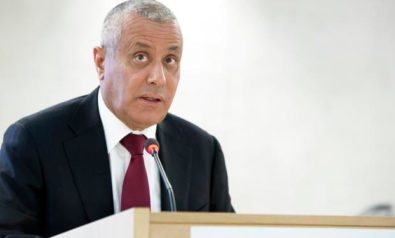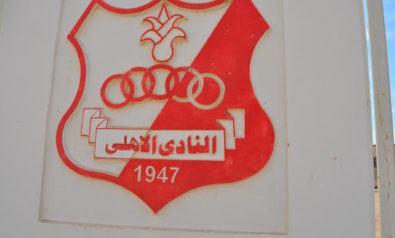A look at the political issues surrounding Libya’s first post-Qaddafi election and the varying agendas of each of the main parties.
Lenin once noted that “Sometimes decades pass and nothing happens, and then sometimes weeks pass and decades happen”; an observation that appears tailored to Libya's recent history, with events of future historical significance becoming a weekly occurrence since February 2011. Although the dust has now settled on the battlefields, Libya is still suffering from the wide-ranging problems from the recent conflict. The incompetence of the National Transitional Council (NTC) in dealing with these problems, the fast thinning patience of the people towards them, and the wide range of aspirations for the changes that elections will bring, have harmoniously climaxed into the considerably heightened stakes surrounding Libya's first general election.
Despite the once-dreaded dictator being no more, Libyans still live mired within the intricate realities Muammar Qaddafi constructed over the country. Libya's lack of development and infrastructure over the past 42 years has been felt more than ever after the destruction wrought by the war. Moreover, Qaddafi's decades of brainwashing Libyans to view political parties as a form of dictatorial rule and to instead adopt the doctrine of his infamous green book for a truly free existence, are just two examples of the myriad issues Libyans are trying to shake off with these elections.
Political Issues Surrounding the Country
Whilst the NTC has been struggling to bring order to the chaos, their inability to deal with the problems such as armed bands of militia still called thuwar (revolutionaries), coupled with the council's lack of transparency, has led to a widespread feeling of frustration. There have been occasional violent incidents such as the attack on the NTC's Benghazi headquarters in January. The anxiety fuelled by the NTC's failings and the presence of ex-regime members amongst their ranks is perhaps more significant. For example, in east Libya, there are widespread fears that the neglect and exploitation the region suffered under Qaddafi will reappear as a result of a Tripolitanian-centric government. This has led to what is known as the federalist movement, with those involved pushing for Libya to adopt a federal system similar to that in the United States. Some groups are even threatening to boycott these elections due to what they consider an unfair allocation of seats.
However, one commonality throughout the country is the hope that a democratic Libya will lead to a more stable and prosperous life for all, and the expectation that the July 7 elections will be the first real step towards solving the country's problems and underlining national unity. The feeling of hope and expectation has led the public to register for these elections in their droves, and to participate in the selection of their next interim government. Indeed, there is an enthusiastic willingness to create a new system of politics and law within which to resolve their problems.
This popular will and commonality of cause is mirrored in the policy directions suggested by the state's political parties. There are common grievances amongst the various political entities and individual candidates vying for seats in the constituent assembly. These shared grievances and demands include the trying of old regime members who are guilty of crimes as a means to national reconciliation, security and stability, and political and economic reform.
Islamism, Ex-Regime Members and National Reconciliation
Significantly, it is important to note that although the blend of democracy and political pluralism resembles elections many of us are familiar with, Libya's history and unique character suggests that we cannot always use our traditional dichotomies and tools of analysis when observing them.
When addressing the ever-popular Islamist question, a brief look at the parties shows that even the most liberally perceived party — Mahmoud Jibril's National Forces Alliance — still fits the traditional definition of being Islamist; being a political party operating under an Islamic framework. However, an acknowledgement of the Islamic nature of all parties does not imply Libya's new interim government will be similar to the Taliban or Somalia's al-Shabaab. A better example can be found in the transformative effect that Turkey’s ruling AKP has had on Arab states by highlighting a new path for Islam in modern liberal-democratic politics.
Moreover, Libya’s population and culture is naturally intertwined with the precepts of Sunni Islam. Therefore, any political system constructed by Libyans will naturally be imbued with this significant part of their national culture. Furthermore any system without some influence of Islam will likely not be respected or accepted by the Libyan people.
There are two methods for bringing ex-regime members to justice for crimes they committed under Qaddafi's rule and for adopting a process of national reconciliation. Some, such as the Nation Party, state that the two should be done in unison. The other seemingly more popular perspective, insists that any attempts at reconciliation are futile until ex-regime members are brought to justice. Dr Faisal Krekshi, of the National Forces Alliance, stated: “I don’t know why people are creating confusion about this point… You cannot have reconciliation without first having justice. We must establish a justice system that is clear, independent and effective. Once we have that, and justice has been done, then reconciliation can begin.”
Regarding Libya's future political make up, most suggest a parliamentary model to be the country's best choice with all the major parties except one agreeing on this point. The National Forces Alliance is not opposed to a parliamentary system, but has stated that they will decide between the parliamentary and presidential system after the permanent constitution is created.
Federalism and the Economy
However, hand in hand with this point often comes the federalist question. Since its conception, what was once just a political idea has now snowballed into a movement used to voice wider concerns and political opinions. Moreover, the multi-faceted nature of the demands of ‘federalists’ and the sometimes overlapping sentiments of ‘anti-federalists’ makes it worth asking if all those involved in the issue are operating under a singular definition for federalism.
Although some claim the federalist’s ultimate goal to be separation of the country into its historic provinces, we see a unanimous refusal for separation by all parties. However, just as unanimous is the wish for a heavily decentralised government. This issue initially spawned from a fear of the resurgence of past suffering attributed to the divisive and highly centralised Qaddafi regime, but has now become a nationwide fear. The level of decentralisation spoken of by the different parties is concerning. Krekshi stated that healthcare, transport, education, and a proportion of taxes should be under the control of local councils. He argued that these services must “serve to both incentivise local councils and help local taxpayers feel tangible benefits from their taxes”. Therefore, this suggests that a future Libyan government will delegate enough local autonomy to allay this considerable fear of the federalists.
The political outlook for Libya's economy is another area possibly suffering from a rejection of "all things Qaddafi" as the late dictator banned the concept of private property and nationalised anything that would benefit him. Consequently, all the major parties now suggest an economic inverse, consisting of heavy privatisation and free-market principles, not nationalisation and protectionism, as the best way of maximizing Libya's vast economic potential in fields such as oil and gas extraction, tourism and agriculture. However, the main economic policies and principles of the various parties are still significantly under-developed.
This is exemplified by the economic policy of the National Forces Alliance. In a recent interview, Krekshi discussed the opposing economic ideals being suggested by the different parties. Krekshi expressed his belief in the principles of privatisation but called for Libya to first develop its economy. “Libya needs its own Marshall Plan to develop a proper infrastructure, and then we can talk about privatisation," he argued. The member of the alliance went further by mentioning a possible national minimum wage and welfare state, suggesting beliefs in the principle of governmental economic intervention. However, he also suggested a need for the neo-liberal ideology of heavy foreign investment, and the development of special economic zones around certain towns to help Libya's growth.
This appears to be a policy area that different parties will develop further once the elections are over. Significantly, the economy holds the key to many varying Libyan dreams, and therefore, it is likely to be the focus of heated debate.
National Security Service
Furthermore, Libya is in desperate need for security and stability. There is a popular consensus that the path to stopping armed militias stems from the creation of a strong national security service whose powers are legitimate and whose authority is respected. The Nation Party embellishes this by highlighting their opinion that a secure safeguarding of the borders is a key step towards Libya's stability.
In terms of foreign policy, there is common ground between the parties. However, like the economy it has been an overlooked policy. At present, the policy rests on the twin principles of creating partnerships based on equality, and focusing objectively on Libya’s interests. This therefore means that these parties do not wish to hamper Libya’s potential future interests by cutting ties with key nations like China and Russia, despite these countries’ past support for Qaddafi's counter revolution.
Despite many hopes hinging on these elections, the majority of policies, including those addressing the country’s current problems and those looking to future developments, remain lacking in organisational or operational detail. However, the approach to these individual problems will likely be consistent regardless of who the winners are. Whilst these elections may not reveal many details about Libya's future, they will indicate the general path the country is heading towards. Indeed, policies will be modified repeatedly, as the nation's issues are dealt with, and alternate approaches will be developed over the coming months. Regardless of the outcome, the elections on July 7 will show that it is now the Libyan people rather than the politicians, who will lead Libya into the future.
The views expressed in this article are the author's own and do not necessarily reflect Fair Observer’s editorial policy.
Support Fair Observer
We rely on your support for our independence, diversity and quality.
For more than 10 years, Fair Observer has been free, fair and independent. No billionaire owns us, no advertisers control us. We are a reader-supported nonprofit. Unlike many other publications, we keep our content free for readers regardless of where they live or whether they can afford to pay. We have no paywalls and no ads.
In the post-truth era of fake news, echo chambers and filter bubbles, we publish a plurality of perspectives from around the world. Anyone can publish with us, but everyone goes through a rigorous editorial process. So, you get fact-checked, well-reasoned content instead of noise.
We publish 2,500+ voices from 90+ countries. We also conduct education and training programs
on subjects ranging from digital media and journalism to writing and critical thinking. This
doesn’t come cheap. Servers, editors, trainers and web developers cost
money.
Please consider supporting us on a regular basis as a recurring donor or a
sustaining member.
Will you support FO’s journalism?
We rely on your support for our independence, diversity and quality.











Comment